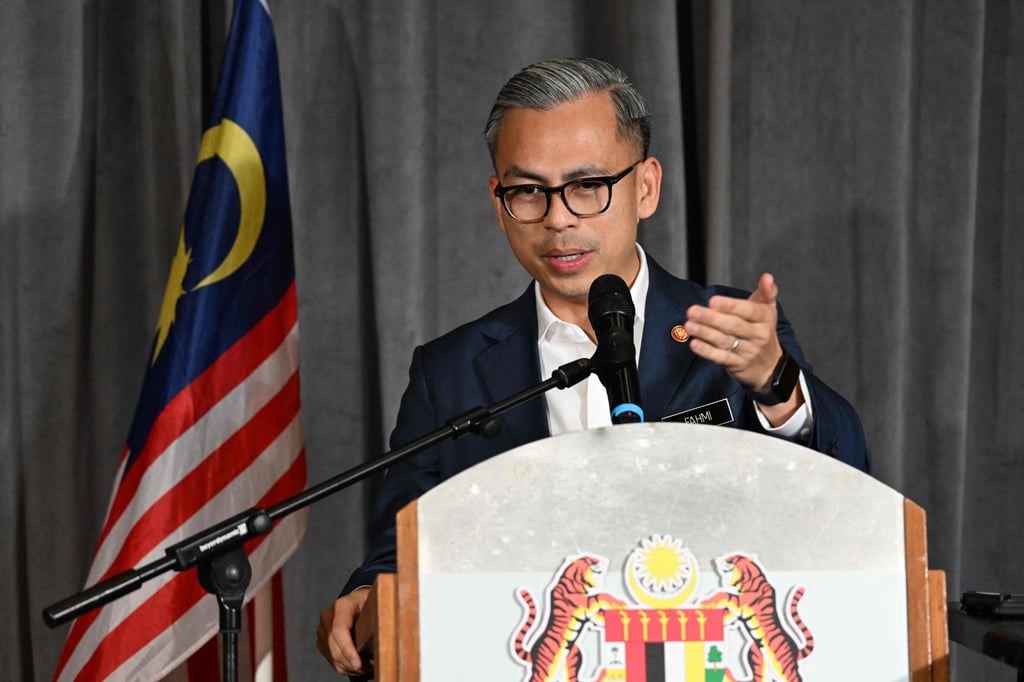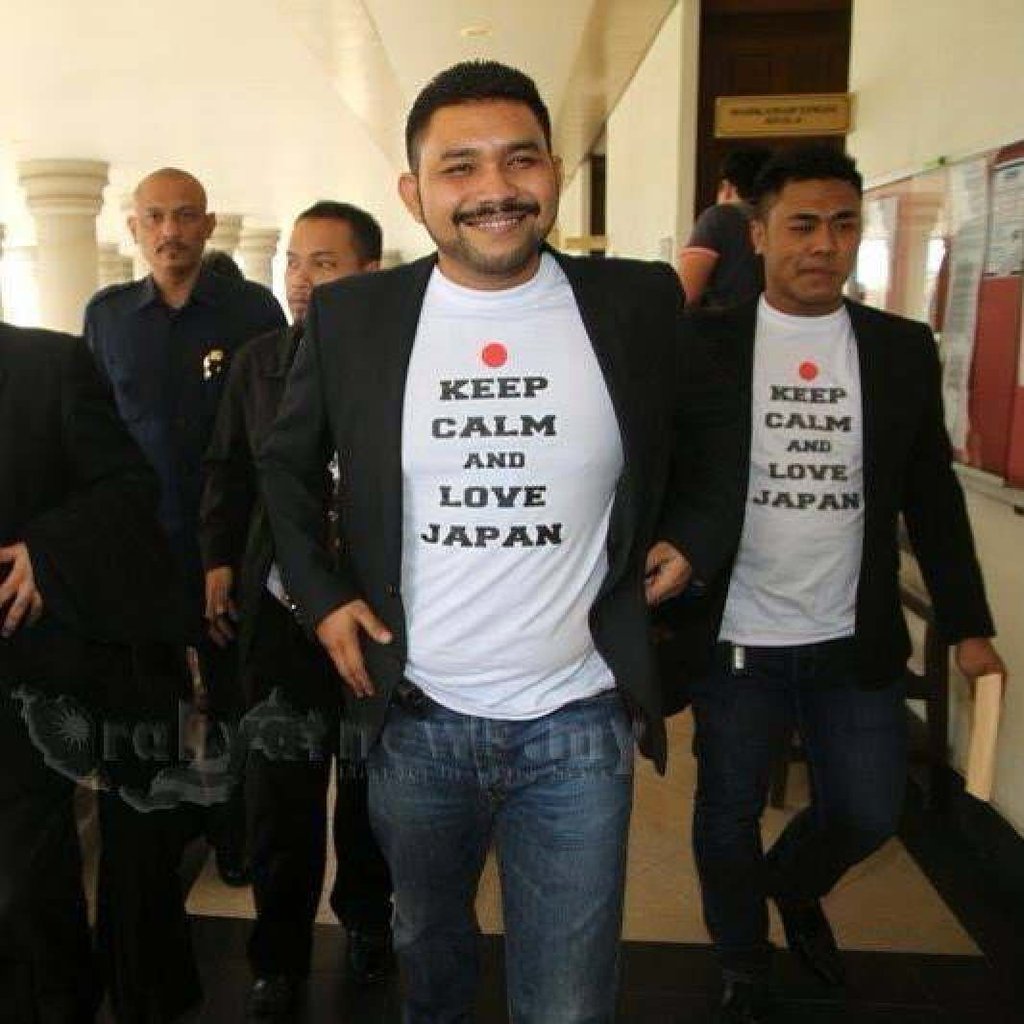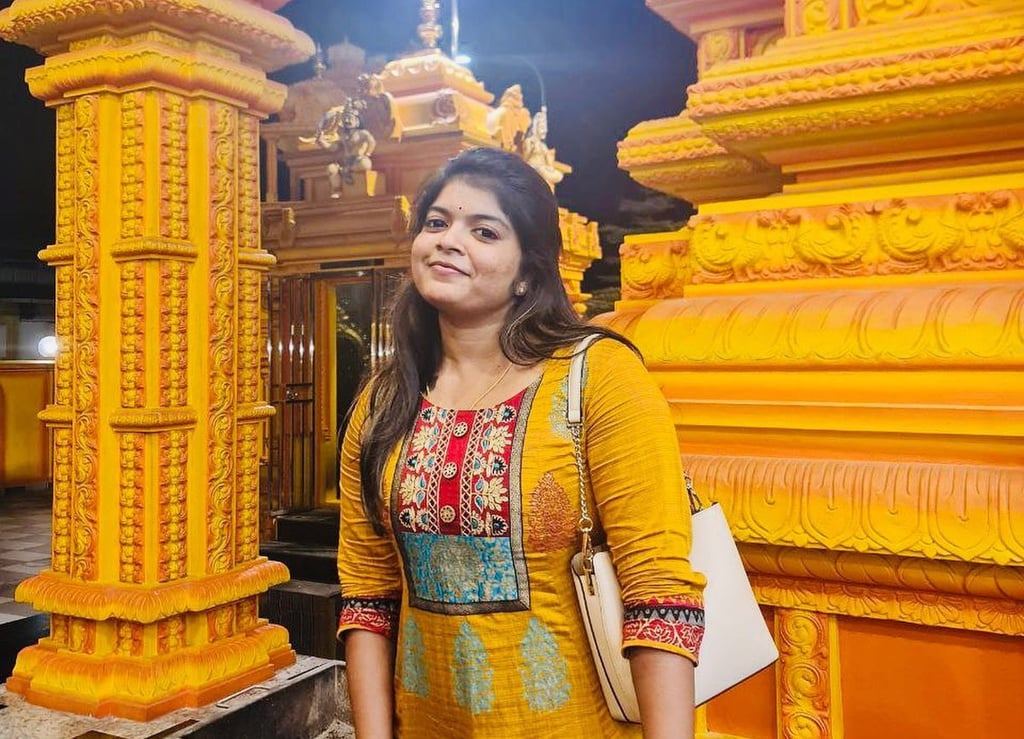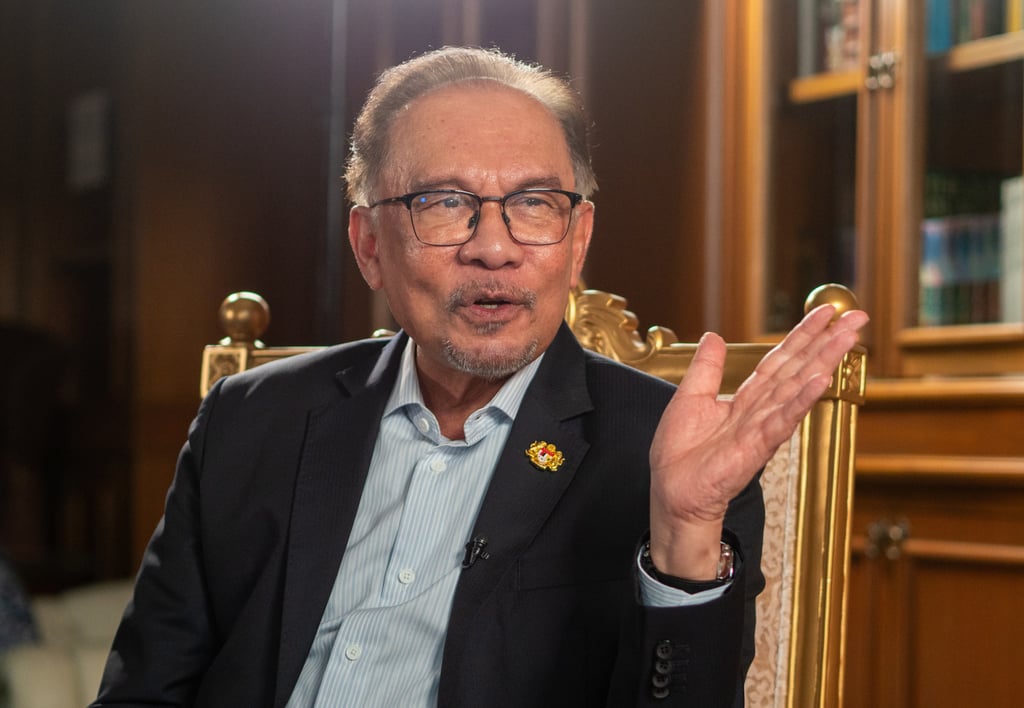
South China Morning Post
Advertisement Advertisement Get more with myNEWS A personalised news feed of stories that matter to you
It was only a matter of days before police came calling for opposition activist Chegubard, after he posted pictures of confidential documents on his Facebook page, exposing alleged corruption by a high-ranking official in Malaysia ’s navy.
He was summoned last Sunday, arrested and remanded in custody for two days during investigations into a post made on July 22, alleged to have violated the Official Secrets Act and internet laws. This was the second incident this year for Chegubard, whose real name is Badrul Hisham Shaharin.
In May, he was charged under Malaysia’s Sedition Act with allegedly insulting the king in a social media post.
Now, the government says it needs more rules to curb the excesses of the internet .It is mandating licensing of social media platforms and will soon press for a “kill switch” ostensibly to close down the spread of harmful online content aimed at minors. However, this has raised concerns about potential broader internet control and suppression of dissenting opinions, such as Chegubard’s.

“Whistleblowers should be protected, but the reverse is happening under the Madani government,” Chegubard’s lawyer, Rafique Rashid said after his client’s release, referring to Anwar Ibrahim ’s government tagline which is meant to embody the common goal of sustainable development founded on respect, trust and compassion.
Critics say Chegubard’s regular tango with the authorities is just one example of an increasingly authoritarian trajectory under Anwar, who built his entire Reformasi or Reform movement on a foundation of dissent.
As the government seeks greater control over social media, there are fears among free speech advocates of a slide towards state censorship similar to that in China. Those anxieties deepened when Deputy Prime Minister Ahmad Zahid Hamidi compared the new measures to those imposed by Beijing on its internet.
On Thursday, the government said social media and internet messaging firms with 8 million or more registered users would be required to have an operating licence by January 1, reinstating licensing requirements that were suspended more than 20 years ago.
Failure to comply could lead to penalties under existing laws, with a maximum 500,000 ringgit (US$105,500) fine and up to five years’ imprisonment. Platform operators also face a 1,000 ringgit daily fine for each day they remain unlicensed.
In addition, a separate law also in the works will mandate social media and internet messaging service providers to install a “kill switch” as part of efforts to bolster digital security for Malaysians.
Backers of the regulatory tightening say it is a necessary evil to crack down on growing incidents of cybercrimes, specifically online scams, child pornography and online bullying , while others remain unconvinced.

Analysts have cautioned that any new legislation could increase tech operating costs and potentially lead to platform operators opting out, limiting content diversity and reducing competition.
Global rights group Amnesty International stated in its 2023-2024 State of the World’s Human Rights report that during Prime Minister Anwar Ibrahim’s tenure, there has been a narrowing space for freedom of expression, increased censorship, harassment, and restrictions on peaceful assembly.
Amnesty said the government “did not act on” its election campaign pledges to reform laws that restrict the right to freedom of expression.
Instead, “authorities continued to use repressive laws … to silence critical voices, both on- and offline”.
Anwar’s government gave away early hints of its unexpected reflexes to smother dissent.
Soon after his appointment, Fahmi summoned representatives of TikTok to explain the proliferation of racially-charged content and fake news on their platform during the 2022 national polls.
It marked the start of an increasingly heavy-handed approach by the government in dealing with content and incidents – both online and offline – deemed by authorities to have contravened the 3Rs, which cover the hypersensitive topics of race, religion and royalty.
Critics and the opposition have accused the government of abusing its 3R policy to chase down online dissent.

Popular blogger Wan Muhammad Azri Wan Deris – better known as Papagomo and a regular Anwar critic – was charged in May over an allegedly seditious post related to the king on X, formerly Twitter .
There are legitimate grievances online to address.
Malaysia’s regulatory move on social media followed hot on the heels of a widely covered case of a local positivity influencer who allegedly committed suicide on July 5 after facing severe online bullying.
Two people were charged and found guilty of separate charges related to the case, including one woman who was let off with a 100 ringgit (US$21) fine.

Minister Fahmi said he was disappointed with the paltry fine meted out against the bully and that the government would need to re-examine the definition of cyberbullying and the appropriate punishments.
Rampant online scams , which cost Malaysians more than 1 billion ringgit (US$210 million) in 2023 alone, have also moved the government’s hand, with deep-pocketed social media giants and internet messaging firms now duty bound to control the proliferation of content deemed to cross the law.
In October, the government will lay out specific guidelines for social media and internet messaging service platforms, including a “kill switch” to tackle crimes such as fraud, cyberbullying, spreading paedophilic content and sexual harassment, according to Law Minister Azalina Othman Said.
“If we look at neighbouring countries’ laws and ours, we lack enforcement or perhaps lack of focus areas on enforcement,” said Benjamin Shepherdson, a non-executive director at data protection advisory Straits Interactive.
“There’s a saying that goes ‘old tactics, new methods’. The way of scamming has changed with the use of online tools such as social media and technology like generative AI.”
The move by Malaysia reflects a trend in the region, where there is a growing emphasis on regulatory control over social media.

Neighbouring Singapore has its Protection from Online Falsehoods and Manipulation Act (POFMA) in effect since October 2019, which the government said was needed to protect society from falsehoods or “ fake news ” that are detrimental to public interest.
But critics have said the city state’s administration has often used the law to protect itself from criticism by denying access to content such as news articles and academic research that could undermine public confidence in the government.
Thailand has strict regulations to compel internet service providers to take down offending content within 24 hours, adding to the government’s already broad powers that have been frequently used to stifle dissent – including the draconian lèse-majesté law, which shields the monarchy from criticism with jail terms of up to 15 years per charge.
Activists and the opposition in Indonesia have also long complained of too broad powers available to the government and authorities to prosecute critics under internet laws, though President Joko Widodo ’s administration caved to pressure to soften some provisions last year.
None get close to the levels of more control of the internet achieved by China’s “ Great Firewall ”, which among its capacities blocks access to numerous foreign websites and services – including social media platforms – deemed to be detrimental to the country.
But that has not reassured Malaysian rights defenders of the risks of slipping into censorship.
“It’s very sad to see friends who are now politicians, and who should know better, spin the same incredible nonsense that they previously railed against,” Malaysian veteran rights lawyer K Shanmuga said in a post on X.
“Introducing licensing for social media in Malaysia is a regressive move & totally against #freespeech principles.”